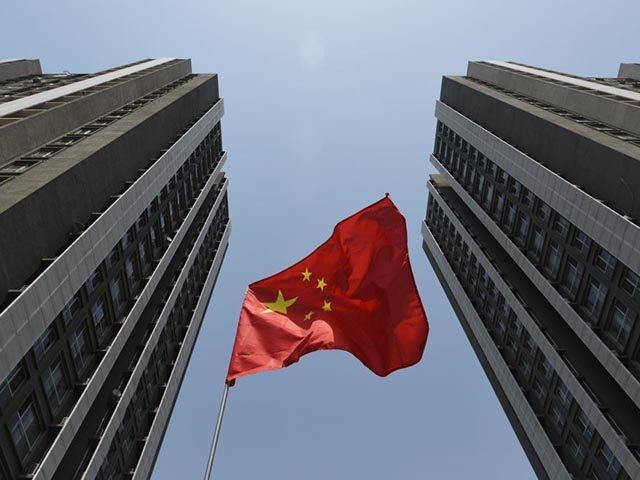Chinese state media spent the weekend crowing that “American-style democracy” is finished after the Capitol riot, asserting the United States has sacrificed all credibility as a voice for freedom, as well as the moral stature to criticize countries like China for their human rights abuses.
The People’s Daily on Monday happily quoted Lebanese diplomat Mohamad Safa: “If the United States saw what the United States is doing in the United States, the United States would invade the United States to liberate the United States from the tyranny of the United States.”
This was followed by the latest iteration of the Chinese Communist Party’s (CCP) argument that the coronavirus pandemic demonstrated the superiority of China’s authoritarian model over free-market capitalist democracy:
The COVID-19 [Chinese coronavirus] pandemic has brought unprecedented challenges to the values of democracy, freedom and human rights that the West has taken delight in talking about. People seem to find out that the reality has revealed contradictions and double standards.
If, in the face of such a straightforward, transparent, and thorough reality drama, some people’s myths and obsessions about democracy, freedom, and human rights in the West cannot be shattered, then the only hope for the time being should be pinned on more rational analysis.
Is democracy a means or an end or a combination of both? Should democracy solve the problem of fairness or efficiency? Should democracy safeguard procedural justice or substantive justice or give consideration to both? Mankind’s exploration and thinking over democracy has never stopped.
The People’s Daily was sporting enough to allow that American-style democracy might have played its “due role in history when it comes to exploring the human system,” but now the U.S. is “dizzy” from “democratic arrogance boosted by economic power and the calculation of interests driven by global expansion.”
“It is evident that the negative consequences of the export of ‘democracy’ by the U.S. have appeared in many countries. The gunshot at the U.S. Capitol shows that the bitter fruit of ‘democracy’ will eventually have to be swallowed by the U.S. itself,” the editorial concluded.
A guest op-ed at China’s state-run Global Times over the weekend by Martin Jacques, a senior fellow at both Cambridge University and Fudan University’s China Institute, also argued that the Capitol riot will “mark a fundamental change in how the world sees the United States.”
Jacques wrote:
America likes to present itself as a model of democracy, an example for every other country in the world to follow. Yet the spectacle of armed demonstrators, with the encouragement of the outgoing president, breaking into Capitol Hill and seeking to disrupt the confirmation of the new president, is the kind of behavior we have associated in the past with a handful of Latin American countries.
Jacques argued the riot was the result of “America’s relative decline since the 1980s,” by which he primarily meant a declining standing of living, rising “income inequality,” and the death of the “long-standing and much-vaunted American Dream.” He threw in a few big shout-outs to his Chinese hosts in the course of explaining why America is falling apart:
For a country that has been more or less on the rise for the whole of its history – in other words, for well over two centuries – this has come as a huge shock. Americans have thought of their country as the land of opportunity, God’s chosen people, the leading country in the world. Given this backdrop, it is hardly surprising that Americans were totally unprepared for what has happened in the last twenty years: two failed wars, the 2008 financial crisis, a weakening economy, accelerated national decline and the rise of China. The consequence has been unhappiness and angst, profound uncertainty and loss of confidence about the future, and growing divisions.
Jacques thought a new Civil War could be in the offing, with nowhere to go but down for an America locked into “rapid decline, rampant inequality, falling living standards for the majority, rising unemployment, and China on the verge of displacing the U.S. as the world’s largest economy.”
“We cannot describe America as comprising two nations, but the bitter divisions that have opened up as a result of the Trump presidency, his veiled threats of a coup if he was not re-elected, and his deliberate encouragement of opposition bordering on insurrection, suggest that this could yet become America’s future,” Jacques warned. “The Civil War offers a chilling historical precedent, with eleven states choosing to secede from the Union because of their refusal to accept the ban on slavery.”

COMMENTS
Please let us know if you're having issues with commenting.